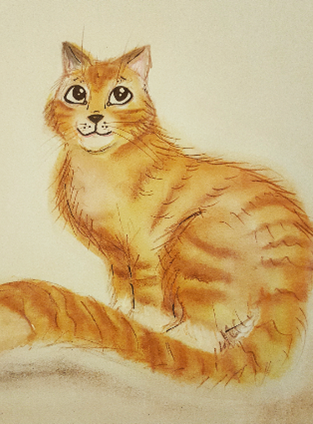For a huge number of families, seeing the children grow up alongside a family pet is an utter joy. Watching their bond strengthen over the years and allowing children the opportunity to care for and nurture their best friend is undoubtedly a wonderful thing. It’s a sad fact, however, that a pet is likely to get poorly at some point in their life, something that can be very difficult to rationalise to the little people in your life.
Our new Vetsure for Kids series is here to help with just this. We take a brief look at some common illnesses your pet might suffer from in their lifetime and offer some on how to explain these to young children in a sensitive manner. Be sure to check the link at the bottom of this article for a FREE Vetsure for Kids Pet Pack that you can share with your little one.
In part one of this series, we’re taking a look at canine and feline epilepsy, one of the most common neurological disorders seen in dogs and cats.
Explaining epilepsy in pets to your child
Due to the nature of epilepsy, it’s possible that your child may have witnessed their beloved cat or dog acting in a strange way, that’s completely out of character, before you’ve even received a diagnosis from the vet. Of course, it’s important for your pet to be seen by your local vet as soon as possible and, once it’s been confirmed that their symptoms have been caused by epilepsy, you may need to put your child’s mind at ease regarding what they have witnessed.
Depending on the age of your child, it’s best to go into a bit of detail about what’s causing your pet to behave strangely sometimes and what might happen to them due to the condition. Vetsure Claims Assessor, veterinary nurse, dog owner and super-mum, Amey Montgomery, suggests an explanation you might like to share with your child:
“We all have a brain which is inside our head, and this is the bit of your body that makes you think, move, and do all sorts of amazing things!
Pets have brains too just like us, but when a pet has epilepsy, their brain can get too busy!
A busy brain may make them do some very odd things. These odd things could be standing still and staring at nothing… a little like a daydream or sometimes they may fall and shake a lot.
This is called a “fit” which can be a bit scary looking and sounding. Don’t worry though, it doesn’t hurt them, but it does make them very tired and confused when they wake up.”
What can your child do if an epileptic pet is having a fit?
Once your little one understands the basics of epilepsy in a cat or dog, they will likely want to be helpful and make their best friend feel better. It is, however, very important that they steer clear of a fitting pet as they could lash out and cause injury.
Here are some instructions you can leave with your child as ways they can be helpful during a pet’s epileptic episode:
- Tell a grown up right away.
- Don’t touch your pet if they are having a fit as they might accidentally hurt you.
- A grown up can move any furniture that your pet is close to, to stop them getting hurt.
- Make the area quiet if you can by turning off the TV or anything else that is making noise.
- Once your pet is awake, don’t touch or cuddle them until a grown up says it’s safe to as they might be confused and need some space.
Being safe with Medicine
Often a pet with epilepsy will need to take medication everyday to stop or reduce their fits. Be sure to keep these out of reach of children, but for added safety, you can let them know rules such as the following:
- You must never touch your pets medicine as it can be dangerous for children
- Medicine should only be given to your pet by a grown up
- The medicine for your pet should be kept in a cupboard out of the way.
- If you ever find your pets medicine, you should tell an adult who can put it away in a safe place.
Vetsure for Kids – Epilepsy Pet Pack
Click here to download your FREE pet pack, written and designed by Vetsure Claims Assessor and Veterinary Nurse, Amey Montgomery. This informative booklet can be given to children to help explain epilepsy in pets to them. Encourage them to fill in the booklet by drawing a picture of their pet, describing their pet’s favourite toy, and filling out the pet epilepsy diary. Don’t forget to sign their name on the Good Ownership Award at the end of the booklet!
Vetsure Pet Insurance
Treatment for a pet with epilepsy can become very expensive over time. Insurance can help with these costs so long as it’s taken out before any signs of the illness start. All Vetsure Pet Insurance policies are lifelong. This means that if your pet develops epilepsy while you have an active policy with Vetsure then we would look to cover the condition for the entirety of your pet’s life. For a Vetsure Pet Insurance quote, click here or give our friendly customer service team a call on 0800 050 2022.


 The Vetsure Network
The Vetsure Network  Find a Vet Clinic
Find a Vet Clinic 